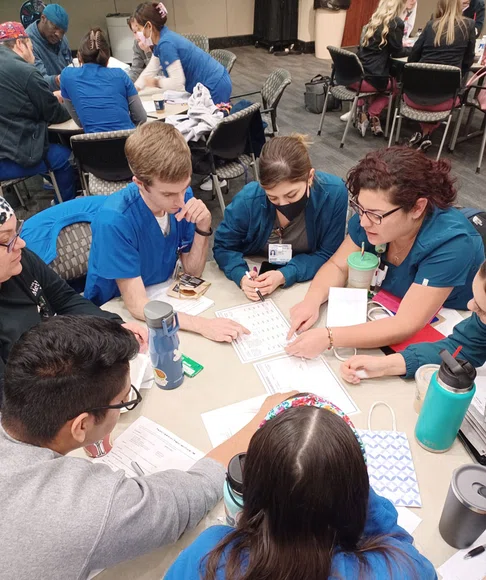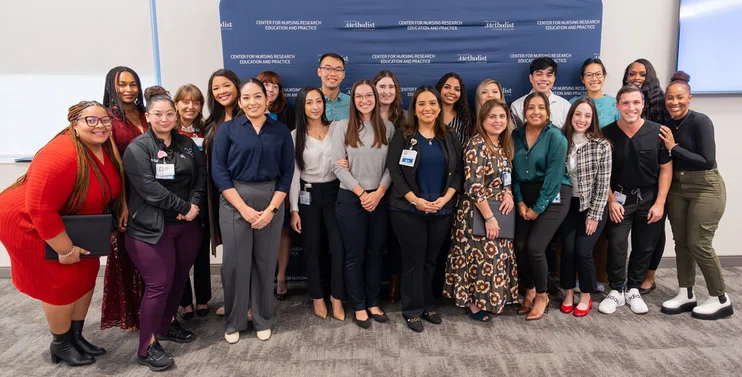© 2023. Houston Methodist, Houston, TX. All rights reserved.


In this
issue

WELCOME
NURSING SCIENCE

Implementation Science in Nursing: Let’s Do The Thing!

Project Approval Process

Systems-based physical assessments: Earlier detection of clinical deterioration and reduced mortality
EDUCATION

Houston Methodist Nurse Residency Program: Empowering Newly Licensed Nurses

The Center for Nursing Research, Education, and Practice Multimedia Team
PRACTICE

Introduction to Chief Nursing Informatics Officer

Revitalizing CVICU Orientation: Charting New Milestones for Excellence
PROFESSIONAL DEVELOPMENT

Certification Review Courses

International Honor Society of Nursing

Nursing Certification Payment Programs at Houston Methodist
FROM OUR TEAMS

ABOUT DISCOVERN
EDUCATION
Houston Methodist Nurse Residency Program: Empowering Newly Licensed Nurses
By Jo-Anne Senneff, MSN, RN, CCRN-K
By Jo-Anne Senneff, MSN, RN, CCRN-K

The transition of a newly licensed nurse (NLN) from academia to nursing practice has its challenges. Houston Methodist is strongly committed to its Commission on Collegiate Nursing Education (CCNE) accredited Nurse Residency Program (NRP), which ensures that our nurses do not start their journey alone and are supported every step of the way.

The mission of the Houston Methodist NRP is to foster the professional growth and leadership development of a newly licensed nurse through personal connections, integration of innovative best practices to empower them to gain the confidence and competence to transition from advanced beginners to competent professional nurses.
In collaboration with the Vizient/American Association of Critical-Care Nurses (AACN) Nurse Residency Program™, the NRP supports our NLNs with a curriculum designed to strengthen their leadership and professional roles to provide unparalleled high-quality, safe patient care. Our NRP offers practical solutions to dilemmas that nurses often face and has proven to be very effective in fostering confidence and guiding NLNs. This is evident in the one-year retention rates of our NLNs, which are consistently above 90% throughout the system.
The program's main features include an individualized unit-based orientation in conjunction with transition to practice (TTP) classes that provide knowledge, clinical reasoning, and skills related to their specialty area. In addition, a series of thoughtfully developed classes designed to enhance critical thinking skills, leadership, professional development, patient safety, and outcomes are integrated throughout the 12-month NRP. The Houston Methodist NRP structure provides a solid foundation for the successful transition of our NLNs.
References:









